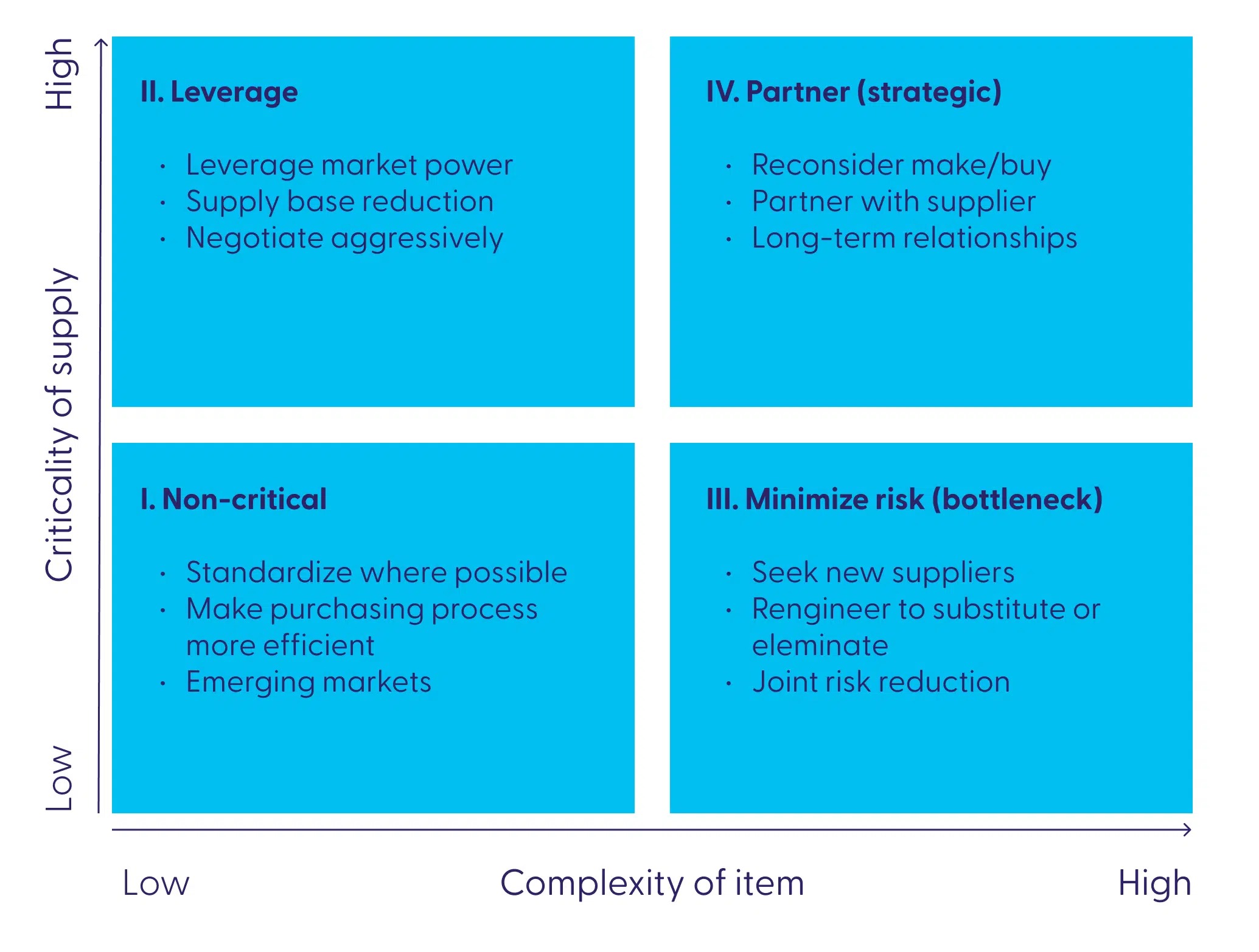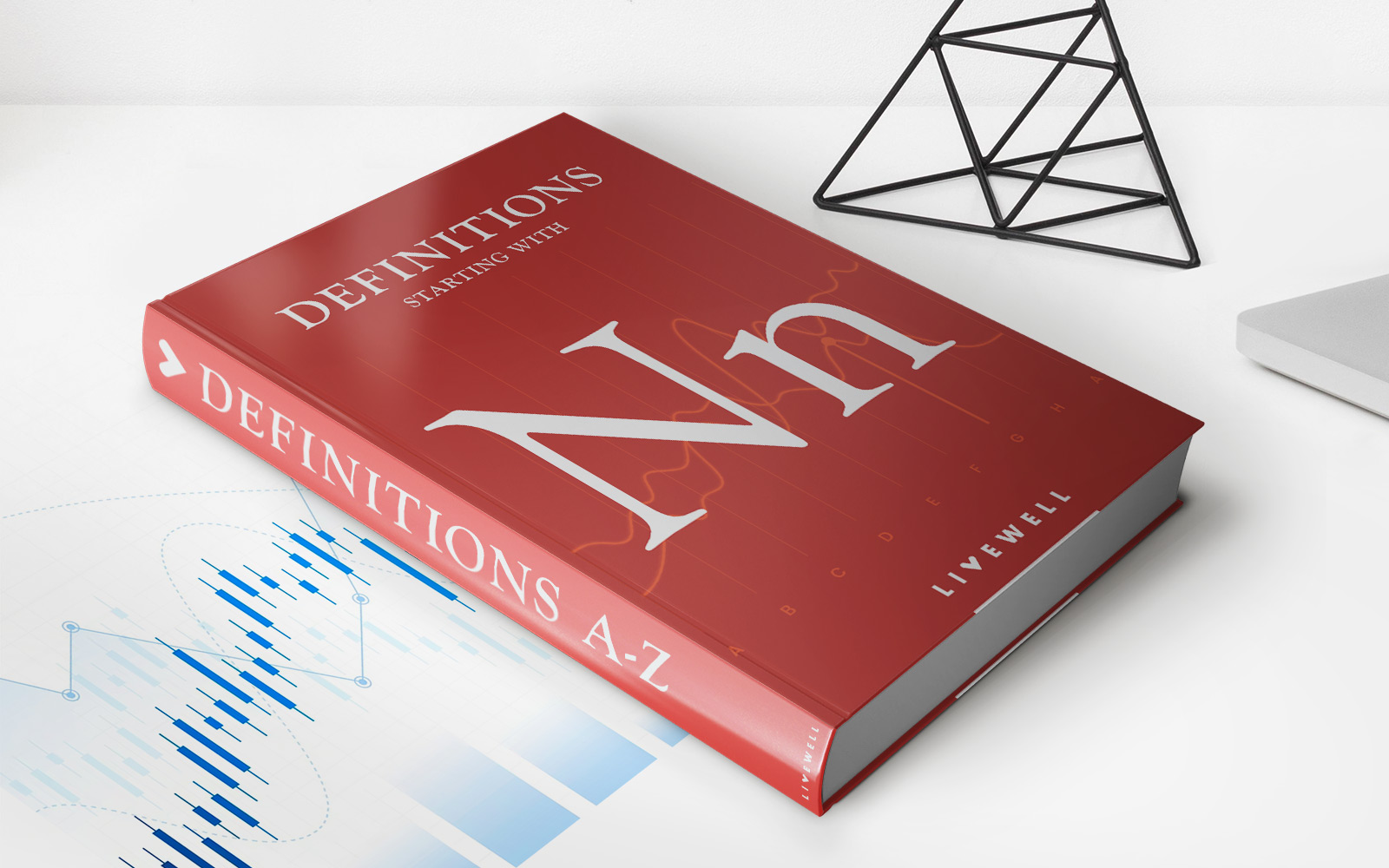

Finance
How To Leverage Credit
Published: January 12, 2024
Learn how to leverage credit to improve your finances. Discover valuable strategies and tips to maximize your credit score and financial opportunities.
(Many of the links in this article redirect to a specific reviewed product. Your purchase of these products through affiliate links helps to generate commission for LiveWell, at no extra cost. Learn more)
Table of Contents
Introduction
Having a good understanding of credit is essential for achieving financial success. Credit plays a significant role in our lives, enabling us to make important purchases such as homes and cars, and providing us with the flexibility to manage daily expenses. However, credit can also be a double-edged sword if not used responsibly. To truly leverage credit, it’s essential to have a comprehensive understanding of how it works and how to make it work for you.
Credit refers to the ability to borrow money or access goods or services with the agreement to repay them later. It is typically measured through a credit score, which determines an individual’s creditworthiness in the eyes of lenders. The higher the credit score, the more likely you are to be approved for loans and be offered favorable interest rates.
In this guide, we will explore how to leverage credit to your advantage, from building a solid credit history to maximizing the benefits of credit cards. By following these strategies and being responsible with your credit, you can pave the way for financial growth and a secure future.
Understanding Credit
Before we dive into leveraging credit, it’s important to develop a clear understanding of what it entails. At its core, credit is a system that allows individuals and businesses to borrow money or access goods and services with the promise to repay the borrowed amount over time.
One key concept to grasp is the credit score, a numerical representation of an individual’s creditworthiness. This score, ranging from 300 to 850 in the FICO scoring system, is determined by various factors including payment history, credit utilization, length of credit history, types of credit, and new credit inquiries. Lenders use credit scores to evaluate the risk associated with lending money to borrowers.
By maintaining a good credit score, individuals can enjoy several benefits. These include securing loans at favorable interest rates, obtaining higher credit limits, being eligible for rewards credit cards, and even accessing better insurance rates. On the other hand, a poor credit score can make it difficult to obtain loans, result in higher interest rates, and limit financial opportunities.
It’s also important to understand that there are different types of credit, including installment loans (such as auto or personal loans), revolving credit (like credit cards), and lines of credit (such as home equity lines). Each type of credit comes with its own terms and conditions, interest rates, and repayment schedules.
By understanding the mechanics of credit and how lenders evaluate creditworthiness, individuals can make informed decisions about their financial choices. With this foundation, you can begin building a solid credit history and leveraging credit to your advantage. In the following sections, we will explore the steps to do just that.
Building Credit History
Building a strong credit history is the foundation for leveraging credit effectively. Lenders look at your credit history to assess your ability to manage borrowed funds responsibly. If you have little to no credit history, here are some strategies to help you establish a positive credit profile:
- Open a credit card: Start by applying for a credit card designed for individuals with limited or no credit history. Use the card responsibly, making small purchases and paying off the balance in full and on time each month. This demonstrates your ability to handle credit and helps build a positive payment history.
- Consider a secured credit card: If you have difficulty qualifying for a traditional credit card, a secured credit card can be a good alternative. Secured cards require a cash deposit as collateral, which serves as your credit limit. Make sure the card issuer reports your payment activity to the credit bureaus so that it helps build your credit history.
- Become an authorized user: If you have a friend or family member with good credit, ask them to add you as an authorized user on their credit card. Their positive payment history can be reflected on your credit report, helping you establish credit.
- Take out a small loan: Another way to build credit is to take out a small personal loan and make regular, on-time payments. Keep the loan amount manageable and ensure that the lender reports your payment activity to the credit bureaus.
Remember, building credit takes time. Focus on establishing a positive payment history, keeping your credit utilization low (more on that in the next section), and avoiding late payments or defaults. With consistent responsible credit behavior, your credit profile will strengthen over time, opening up more opportunities for credit and favorable terms.
Types of Credit
When it comes to leveraging credit, it’s important to understand the different types of credit available to you. Each type of credit serves a specific purpose and has its own terms and conditions. Here are the main types of credit you may encounter:
- Credit Cards: Credit cards are one of the most common forms of credit. They allow you to borrow money up to a certain credit limit and make purchases with the card. It’s essential to use credit cards responsibly, paying off the balance in full each month to avoid high interest charges.
- Installment Loans: Installment loans are loans that are repaid over a set period of time in fixed monthly payments. Examples include auto loans, mortgage loans, and personal loans. These loans are used to finance specific purchases and typically have lower interest rates compared to credit cards.
- Revolving Credit: Revolving credit refers to credit that can be used repeatedly up to a certain credit limit. Credit cards are a common example, where you can borrow, repay, and borrow again as long as you don’t exceed the credit limit. The interest is charged on the outstanding balance.
- Lines of Credit: Lines of credit provide access to a pre-approved amount of funds that can be borrowed as needed. This type of credit is often used for ongoing expenses or emergencies. Home equity lines of credit (HELOCs) and personal lines of credit are examples of this type of credit.
Understanding the different types of credit available to you allows you to choose the most suitable form of credit for your needs. It’s important to consider factors such as interest rates, repayment terms, and credit limits when deciding which type of credit to utilize.
Ultimately, utilizing a mix of credit types responsibly can help diversify your credit profile and demonstrate your ability to manage different forms of credit. This can contribute to a stronger credit score and open up more opportunities for favorable credit terms in the future.
Credit Utilization
Credit utilization refers to the amount of available credit you are currently using. It is an important factor that lenders consider when evaluating your creditworthiness. Maintaining a low credit utilization ratio is key to leveraging credit effectively. Here’s how credit utilization works and how to manage it:
Credit utilization is calculated by dividing your total credit card balances by your total credit limit. For example, if you have two credit cards with a combined credit limit of $10,000 and a total balance of $2,000, your credit utilization ratio would be 20% (2,000/10,000 = 0.2 or 20%).
Lenders prefer to see a low credit utilization ratio, generally around 30% or lower. A high credit utilization ratio can indicate financial strain or poor credit management, which may negatively impact your credit score.
To effectively manage your credit utilization, consider the following strategies:
- Monitor your credit card balances: Keep track of your credit card balances and ensure they remain within an acceptable range. Regularly reviewing your statements and online account can help you stay on top of your balances.
- Pay off your balance in full: Aim to pay off your credit card balance in full each month. This not only helps you avoid costly interest charges but also keeps your credit utilization ratio at 0% for that particular card.
- Spread out your balances: If you have multiple credit cards, try to distribute your balances across them instead of maxing out a single card. This helps keep your credit utilization ratio lower on each individual card.
- Request a credit limit increase: If you consistently maintain low balances and good payment history, consider requesting a credit limit increase. This can help lower your credit utilization ratio, assuming your spending habits remain the same.
- Avoid closing unused credit cards: Closing a credit card reduces your available credit and can increase your credit utilization ratio. If you have a card with no annual fee, it’s often beneficial to keep it open to maintain a healthy credit utilization ratio.
By effectively managing your credit utilization, you can demonstrate responsible credit behavior and maintain a good credit score. This, in turn, enhances your ability to leverage credit for future financial growth and opportunities.
Payment History
Your payment history is a crucial aspect of your credit profile and has a significant impact on your credit score. Lenders want to see a track record of timely payments as it indicates your ability to manage credit responsibly. Here’s how to maintain a positive payment history:
Make it a priority to pay your bills on time, every time. Late payments can be detrimental to your credit score and can stay on your credit report for up to seven years. To ensure timely payments:
- Set up automatic payments: Consider setting up automatic payments for your recurring bills such as credit cards, loans, and utilities. This ensures that you never miss a payment even if life gets busy.
- Set reminders: If automated payments aren’t feasible for some bills, set reminders on your phone or utilize calendar applications to ensure you never miss a payment deadline.
- Create a budget: Develop a budget that accounts for your income, expenses, and debt payments. This will help you allocate funds towards your bills and ensure you have enough money to cover your obligations.
- Pay more than the minimum: While it’s important to make at least the minimum payment, strive to pay more whenever possible. This not only reduces your outstanding balance faster but also demonstrates a strong commitment to repaying your debts.
- Communicate with creditors: If you’re experiencing financial difficulties and are unable to make a payment, reach out to your creditors. They may be willing to work out a payment arrangement or offer temporary hardship programs.
Consistently making on-time payments will build a positive payment history over time, boosting your creditworthiness and making it easier to leverage credit for future financial endeavors.
Keep in mind that even a single late payment can have a negative impact on your credit score. Therefore, it’s crucial to prioritize timely payments and make them a priority in your financial management strategy.
How to Leverage Credit for Financial Growth
Leveraging credit for financial growth involves using credit strategically to achieve your financial goals. When done responsibly, credit can be a valuable tool in your financial arsenal. Here are key steps to take to leverage credit effectively:
- Establishing a Budget: Before diving into credit usage, it’s crucial to establish a budget. Determine your monthly income, track your expenses, and set financial goals. A budget helps you manage your finances, avoid overspending, and ensure that credit is used wisely.
- Proper Credit Card Usage: Credit cards, when used responsibly, can provide convenience and benefits. Be selective when choosing credit cards, considering factors like interest rates, fees, rewards programs, and additional perks. Pay off your balances in full each month to avoid interest charges and late fees.
- Managing Debt: Carefully manage your debt obligations, including loans and credit card balances. Avoid taking on more debt than necessary and focus on paying off high-interest debt first. Utilize debt repayment strategies like the snowball or avalanche method to tackle debts effectively.
- Monitoring Credit Score: Regularly monitor your credit score, which you can access for free through various websites and financial institutions. This allows you to track your creditworthiness and identify any potential errors or issues that need to be addressed promptly.
- Maximizing Credit Benefits: Take advantage of credit card rewards programs, cashback offers, and promotional offers when they align with your financial goals. However, remember to be selective and not fall into the trap of overspending to earn rewards.
By implementing these steps, you can leverage credit for financial growth while maintaining a strong financial foundation. It’s important to approach credit with discipline, using it as a tool to enhance your financial situation rather than relying on it as a means of living beyond your means.
Remember, responsible credit usage involves borrowing only what you can afford to repay, making timely payments, and keeping your credit utilization low. By leveraging credit effectively and building a solid credit history, you can unlock opportunities for future financial growth and achieve your long-term financial goals.
Establishing a Budget
Establishing a budget is a crucial step in managing your finances and leveraging credit effectively. A budget provides a clear picture of your income, expenses, and financial goals, allowing you to make informed decisions about how to allocate your resources. Here’s how to get started:
- Calculate Your Income: Begin by determining your total monthly income, including salaries, wages, and any other sources of revenue. This will serve as the foundation for your budget.
- Track Your Expenses: Take a closer look at your monthly expenses. Categorize them into essential expenses (such as rent, utilities, and groceries) and discretionary expenses (such as entertainment and dining out). Consider using budgeting apps or spreadsheets to help you track and analyze your spending habits.
- Set Financial Goals: Identify your short-term and long-term financial goals. This could include saving for a down payment on a house, paying off debt, or building an emergency fund. Setting specific goals will help guide your budgeting decisions.
- Allocate Your Income: Based on your income and expenses, allocate a portion of your income towards each category. Make sure to prioritize essential expenses and savings while leaving room for discretionary spending.
- Review and Adjust Regularly: Budgeting is an ongoing process. Regularly review your budget, track your actual spending against your planned allocations, and make adjustments as necessary. This will help you stay on track and make any necessary course corrections.
- Include Credit Payments: Don’t forget to include your credit payments in your budget. Allocate a portion of your income towards paying off credit card balances, loans, and other debts. Make sure the payments fit comfortably within your budget without causing financial strain.
By establishing a budget, you gain better control over your finances and can make more informed decisions about when and how to use credit. A budget helps you identify areas where you can cut back on expenses, save more, and avoid unnecessary debt.
Remember, sticking to your budget requires discipline and occasional adjustments. It may take some time to fine-tune your budgeting skills, but the rewards are worth it. With a well-managed budget, you can leverage credit wisely, avoid excessive debt, and achieve your financial goals while maintaining financial stability.
Proper Credit Card Usage
When it comes to leveraging credit, credit cards can be valuable tools. However, it’s essential to use them responsibly to avoid falling into debt and damaging your financial well-being. Here are some tips for proper credit card usage:
- Choose the Right Credit Card: Before applying for a credit card, consider your financial needs and spending habits. Look for a card with a low interest rate, no annual fees, and rewards programs that align with your preferences.
- Create a Credit Card Budget: Set a budget for your credit card spending and stick to it. Determine how much you can afford to charge to your card each month and ensure that you have enough funds to pay off the balance in full when the statement arrives.
- Pay Your Balance in Full: Ideally, aim to pay off your credit card balance in full each month. This helps you avoid interest charges and builds a positive credit history. If you can’t pay off the full balance, strive to make more than the minimum payment to reduce the amount of interest accrued.
- Avoid Unnecessary Debt: Be mindful of your credit card spending and avoid reckless purchases that can lead to unmanageable debt. Only charge what you can afford to pay back and prioritize needs over wants.
- Monitor Your Credit Card Statements: Regularly review your credit card statements to ensure accuracy and identify any unauthorized charges or errors. If you spot any issues, contact your credit card issuer immediately to address them.
- Avoid Cash Advances: Cash advances from credit cards often come with high-interest rates and fees. It’s best to avoid using your credit card for cash advances unless it’s an absolute necessity.
- Maintain a Healthy Credit Utilization Ratio: Keep your credit utilization ratio, which is the percentage of your available credit that you’re using, below 30%. High credit utilization can negatively impact your credit score. For example, if you have a credit limit of $10,000, aim to keep your balances below $3,000.
- Be Mindful of Opening New Credit Cards: Be cautious about opening multiple credit cards within a short period. Each application can result in a hard inquiry on your credit report, which can temporarily lower your credit score.
By following these tips, you can use credit cards to your advantage. Responsible credit card usage can help you build a positive credit history, earn rewards, benefit from consumer protections, and have the convenience of a credit line when needed. With proper credit card management, you can leverage credit for financial growth while maintaining control over your finances.
Managing Debt
Effectively managing debt is crucial for leveraging credit and maintaining a healthy financial life. Debt can accumulate quickly and become overwhelming if not managed properly. Here are some strategies to help you effectively manage your debt:
- Create a Debt Repayment Plan: Start by gathering information about all your debts, including balances, interest rates, and minimum monthly payments. Develop a debt repayment plan that prioritizes paying off high-interest debts first while maintaining minimum payments on all other debts.
- Consider Debt Consolidation: Debt consolidation involves combining multiple debts into a single loan with a lower interest rate. This can make your debt more manageable by reducing the number of monthly payments and potentially lowering the overall interest paid.
- Avoid Taking on New Debt: While managing your existing debt, try to avoid taking on new debt unless absolutely necessary. Focus on paying off what you owe rather than accumulating more debt.
- Create a Budget: Establishing a budget is crucial for managing debt effectively. Allocate a portion of your income toward debt repayment and factor it into your monthly expenses.
- Pay More than the Minimum: Whenever possible, pay more than the minimum payment on your debts. By making extra payments, you can reduce the overall interest paid and pay off your debts faster.
- Negotiate with Creditors: If you’re struggling to keep up with your debt payments, consider reaching out to your creditors to discuss potential options. They may be willing to work out a modified payment plan or offer temporary assistance during periods of financial hardship.
- Seek Professional Help if Needed: If your debts have become unmanageable, don’t hesitate to seek help from a reputable credit counseling agency or financial advisor. They can provide guidance on debt management strategies and help you develop a plan to regain control of your finances.
- Stay Motivated: Managing debt can be a challenging and long-term process. Stay motivated by tracking your progress, celebrating small wins, and keeping your financial goals in mind.
Remember, effectively managing debt requires discipline, patience, and commitment. It’s essential to stay consistent with your debt repayment plan and make responsible financial choices. By managing your debt wisely, you can improve your financial well-being, reduce financial stress, and create a solid foundation for leveraging credit in the future.
Monitoring Credit Score
Regularly monitoring your credit score is crucial for leveraging credit effectively and maintaining a healthy financial profile. Your credit score is a numerical representation of your creditworthiness and impacts your ability to obtain favorable loans, interest rates, and other financial opportunities. Here’s why and how you should monitor your credit score:
The Importance of Credit Score Monitoring:
1. Early Detection of Errors: Monitoring your credit score allows you to identify and correct any inaccuracies or errors on your credit report promptly. Errors could negatively impact your creditworthiness, and addressing them promptly will help maintain an accurate credit history.
2. Identity Theft Detection: Monitoring your credit score can help you detect signs of identity theft. If you notice sudden drops in your credit score or unauthorized accounts on your credit report, it may indicate fraudulent activity. Taking swift action can prevent further damage to your financial well-being.
3. Identifying Areas for Improvement: Monitoring your credit score gives you insight into what factors are influencing your creditworthiness. It allows you to identify areas that may need improvement, such as reducing credit card balances, making on-time payments, or diversifying your credit mix.
How to Monitor Your Credit Score:
1. Obtain Free Credit Reports: By law, you are entitled to a free copy of your credit report from each of the three major credit bureaus (Equifax, Experian, and TransUnion) annually. You can request these reports online or by mail and review them for accuracy.
2. Utilize Free Credit Monitoring Services: Many financial institutions and online platforms offer free credit monitoring services. These services provide regular updates on changes to your credit report, including new accounts opened, inquiries made, or changes in credit utilization.
3. Consider Credit Score Monitoring Services: If you want more comprehensive credit monitoring, you can subscribe to credit score monitoring services. These services offer real-time credit monitoring, credit score updates, and additional tools to help you stay on top of your credit health.
4. Set Up Credit Alerts: Many credit monitoring services allow you to set up alerts. These alerts notify you of significant changes to your credit report, such as new accounts opened in your name or a sudden drop in your credit score.
Remember, credit score monitoring is an ongoing process. Regularly reviewing your credit reports and monitoring your credit score will help you stay proactive in managing your credit and can lead to long-term financial success through improved creditworthiness and better access to credit opportunities.
Maximizing Credit Benefits
Credit offers several benefits beyond the ability to make purchases or access funds. By understanding and maximizing these benefits, you can make the most of your credit while maintaining a responsible financial approach. Here are some strategies for maximizing credit benefits:
- Choose the Right Credit Card Rewards: Select a credit card that aligns with your spending habits and preferences. Look for rewards programs that offer cashback, airline miles, or points that can be redeemed for travel, merchandise, or other perks. Take advantage of sign-up bonuses and promotions to maximize your rewards.
- Pay Off Balances in Full: To fully benefit from credit card rewards, aim to pay off your balances in full each month. This helps you avoid interest charges and ensures that the value of your rewards isn’t outweighed by interest expenses.
- Utilize Introductory Offers: Many credit cards offer introductory offers such as 0% APR for a specified period or balance transfer promotions. Take advantage of these offers to consolidate and pay off high-interest debts faster or make use of interest-free periods for larger purchases.
- Maximize Credit Card Perks: Credit cards often come with additional perks beyond rewards, such as travel insurance, purchase protection, extended warranty coverage, and access to airport lounges. Familiarize yourself with the perks of your credit cards and utilize them whenever possible.
- Review and Redeem Rewards: Regularly review your credit card rewards and redemption options. Some rewards have expiration dates or redemption restrictions, so ensure that you understand how to redeem your rewards to maximize their value.
- Monitor Credit Card Fees: Be aware of any fees associated with your credit cards, such as annual fees or foreign transaction fees. Consider whether the benefits and rewards outweigh the costs, and be willing to explore other card options if necessary.
- Use Credit for Smart Borrowing: Credit can be a tool for smart borrowing when used for things like investment opportunities, business ventures, or education. Assess the potential return on investment and ensure that the interest paid is outweighed by the benefits gained.
- Safeguard Your Credit: Protect your credit by monitoring your credit card statements for any unauthorized charges, keeping your personal information secure, and promptly reporting any suspicious activity to your credit card issuer.
By implementing these strategies, you can maximize the benefits offered by credit while maintaining financial responsibility. Remember, the key is to use credit as a tool to enhance your financial well-being and leverage the rewards and perks it offers without falling into excessive debt or overspending.
Conclusion
Leveraging credit effectively can have a profound impact on your financial growth and well-being. By understanding credit, building a solid credit history, and adopting responsible habits, you can harness the power of credit to your advantage. Here are the key takeaways:
1. Understanding Credit: Educate yourself about credit, including credit scores, credit types, and how lenders evaluate creditworthiness. This knowledge will help you make informed decisions when it comes to credit utilization.
2. Building Credit History: Establish a strong credit history by opening credit accounts, making timely payments, and managing outstanding balances. Building a positive credit history is a crucial step towards leveraging credit effectively.
3. Manage Credit Responsibly: Use credit cards wisely, stick to a budget, and avoid unnecessary debt. Be mindful of credit utilization, pay bills on time, and maintain a healthy credit score.
4. Monitor Your Credit: Regularly review your credit report, monitor your credit score, and address any errors or discrepancies promptly. By staying proactive, you can protect yourself from identity theft and maintain an accurate credit history.
5. Maximize Credit Benefits: Take advantage of credit card rewards, introductory offers, and perks. Use credit to your advantage for smart borrowing and financial opportunities.
Remember, responsible credit usage involves striking a balance between leveraging credit and maintaining financial stability. By following these strategies and being mindful of your financial goals, you can leverage credit for financial growth, access better opportunities, and create a solid foundation for your future.
Ultimately, the key to leveraging credit effectively is to approach it with discipline, awareness, and a long-term perspective. By using credit as a strategic tool and maintaining responsible financial habits, you can achieve financial success and build a secure future.














